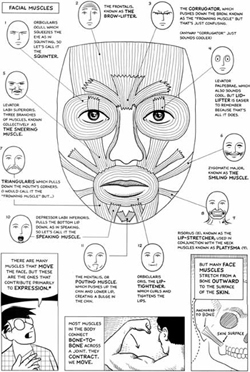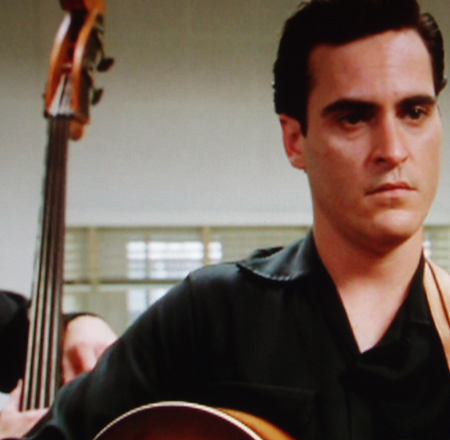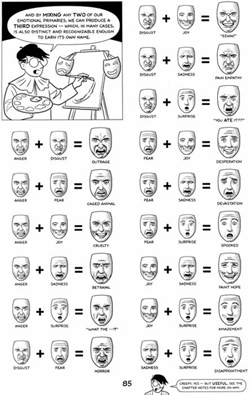Take a mid-list British actor — not a character actor exactly, but not traditional leading-man material either. Slap him with a permanently sour expression and a four-day beard, then cast him in a Fox TV pilot: a procedural drama, with a new mystery to investigate each week. Make him a sort of monstrous genius — possessed of an almost preternatural insight, but so brusque and tactless that he alienates both clients and colleagues, even as he makes himself indispensible to them. Surround him with a young, attractive entourage of protégés, and cloak his past in mystery and hints of tragedy — a backstory, to be teased out in time. And premiere the whole thing in the plum timeslot after the Super Bowl, and wait for the Neilsens to pour in.
But enough about Lie to Me. Let’s talk about House.

House is, of course, a monster hit, and because imitation is not only the sincerest form of flattery but also (per Hollywood) the cheapest form of creativity, it’s hardly surprising that some enterprising network would reassemble some of its elements — none of them, individually, original to House — in hopes that lightning would strike twice, the better to be captured in a bottle, mixaphorically speaking. What is surprising is how thoroughly and blatantly Lie to Me (currently wrapping up its truncated first season, Wednesday nights on Fox) apes the particulars and structure of its model, right down to its musical score, with near-subliminal percussion and keyboards subtly upping the tension even in quiet scenes. Even Tim Roth’s stumpy, splay-toed walk seems mandated by House’s gimpy stagger. Misanthropic antihero must have distinctive gait; new rule. (The camera on Lie to Me continually emphasizes Roth’s compactness, as well, making him — visually, at least — a notional Jeff to Hugh Laurie’s Mutt.)
On Lie to Me (a terrible title; I could come up with a half-dozen better off the top of my head*, and I imagine you could, too), Roth — probably still best known for his work in Reservoir Dogs and Pulp Fiction — plays a consulting behavioral scientist who is, in essence, a human lie detector. Dr. Cal Lie-to-Me — sorry, Lightman — has trained himself to read and analyze “microexpressions,” tiny involuntary changes in features and posture that can betray the real attitudes of even a skilled liar. Lightman’s curse is that, having become exquisitely aware of deception in all its forms, he finds himself surrounded by it. The average person, we learn, lies three times in ten minutes of conversation. The thousand white lies, the insincerities and tactful evasions that carry us through an average day — Lightman sees them all, and it makes him crazy.
Now, that’s a pretty strong character hook. In fact, it’s — well, it’s the hook to House, isn’t it? Greg House’s misanthropy stems in part from his conviction that all patients lie, all the time — to their doctors, to themselves. House’s belief is based anecdotal experience, Lightman’s on direct observation.
Lightman works with a small coterie of “naturals” — prodigies who, through native talent, share Lightman’s ability, if not his bleak worldview. Unfortunately, they also lack much in the way of personality. There’s a level-headed shrink, a kooky legman, and a tough angry chick, and after that I’m kind of hazy on the details. The show’s Washington, DC setting offers plenty of storytelling opportunities — you can watch a bunch of episodes here that show the Lightman Group assisting local law enforcement, the FBI, and even the State Department. And with deception such a universal condition, the potential plots are endless


Context is fun! Comics artist Scott McCloud explains the physiognomy behind microexpressions, in his book MAKING COMICS. Clicking makes it legible!
But there are some odd conceptual weaknesses to the setup, too. Lightman’s abilities, for instance, are as yet ill-defined. Sometimes he functions as a human polygraph; sometimes he seems a full-blown mind-reader. Part of it is to establish him as bad-ass and mysterious, of course — but absent any clear idea of Lightman’s limitations, it’s hard to feel anything’s at stake. And on those occasions when Lightman is proven wrong, it’s never the fault of his technique. There are always extenuating circumstances; the science is always right. And it’s the science of microexpressions — pioneered by Dr. Paul Ekman, the real-life model for Lightman — that is the real star of the show.
Given that, it’s probably inevitable that the human characters on Lie to Me would be upstaged by its high concept. But it plays out in another way that the producers probably didn’t anticipate. Think on it: Using posture and expression to create a false impression of identity and emotional state — well, that’s the craft of acting in a nutshell, isn’t it? And by making these strategies of mimesis central to its premise, the show reprograms its audience, making us hyperaware of the nuances of the performances. On Lie to Me, all the actors — no matter what their roles — are essentially playing actors in the act of acting.
And this house-of-mirrors effect creates a huge problem of believability. Acting — at least the art of acting as it applies to naturalistic TV drama — is best when it is least noticeable. But Lie to Me forces the viewer to notice the process. We can never forget that we are watching performances, rather than lives lived.
Tell you what I mean. There’s a scene in the 2005 film Walk The Line — I’d really hoped to find a YouTube clip, but you’ll know the scene if you’ve seen the movie. Joaquin Phoenix is playing Johnny Cash. Now, Johnny Cash was, of course, a real person. And Phoenix neither looks nor sounds much like the real Johnny Cash; this is a good thing for his performance, because it means that Phoenix is free, in large part, to create the character of “Johnny Cash.” (Contrast with Jamie Foxx’s turn in Ray, which basically takes a nightclub comic’s Ray Charles impression and extends it to two hours.)
I’m thinking of the scene, fairly early in the film, where Johnny and the Tennessee Two have finally scored an audition with Sam Phillips; they play it safe and middle-of-the-road, with a commercially-minded gospel song, and they bomb. Phillips senses the fundamental falseness of the sentiment and the presentation, and nearly turns them away. Finally, with nothing left to lose, the trio launches into a new song of Johnny’s — “Folsom Prison Blues.”
And in the performance that follows, we see timid John R. Cash transform, before our eyes, into JOHNNY. FUCKING. CASH. Or, more accurately, we see Johnny Cash dropping the meek-and-mild act and becoming himself. Or, more accurately still, we see Joaquin Phoenix playing the “Johnny Cash” character he has created, and who in turn is playing the “Johnny Cash” character that he has created, abandoning one mode of performance and adopting another in midstream. It’s a remarkably layered and challenging scene; Phoenix has to make Johnny’s transformation believable and distinct without breaking the illusion, without the making the scene be about Joaquin Phoenix Acting. And he just about manages it, because he’s a virtuoso.

Lie to Me is filled with scenes of comparable complexity — actors portray characters who are themselves portraying a false version of themselves that they are presenting as truthful, but the true version of the self keeps peeking through in ways that the characters cannot control — but which demand exquisite control from the actors; if the show is playing fair with us, the signs must be just noticeable enough that Lightman — and the viewer — can reasonably be expected to spot them, but subtle enough that we can believe that the other characters on the show might not spot them.
That’s hard enough. But imagine watching that scene in Walk The Line, and sitting right behind you there’s a guy — okay, it’s me — murmuring in your ear the whole time: Watch the shoulders drop. See how he straightens up there? With the expansion of the chest, the voice gets more resonant. And the diction — there, he’s dropping his g’s. Hear it? And look at the posture. Say, are you gonna eat those Junior Mints?
It kind of detracts from the magic, doesn’t it? (That’s also why I’m barred from my local multiplex, but that’s another story.)
That’s what watching Lie to Me is like. No matter how skilled the performances are (and the performances are all over the map, skillwise, but that too is another story), the show by its very nature rubs our noses in the fakery, and so undercuts its own immersiveness. If Lie to Me‘s purpose was primarily educational, it would be one thing. But it wants to entertain, to be a character-based drama against a procedural background. For that to work, the show needs to have it both ways. But friends, I’ll not deceive you; I can’t get behind it — not while it’s getting behind me, whispering in my ear. Lie to Me, at least in its initial season, is a fascinating failure, even a noble one — but a failure nonetheless.





Comments